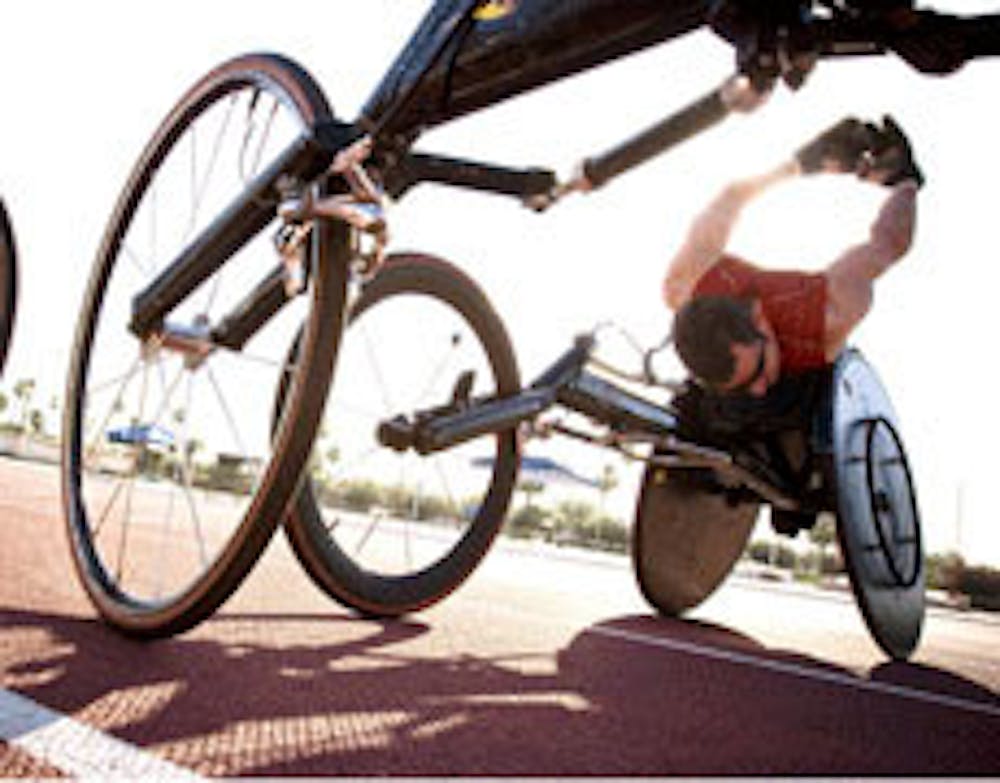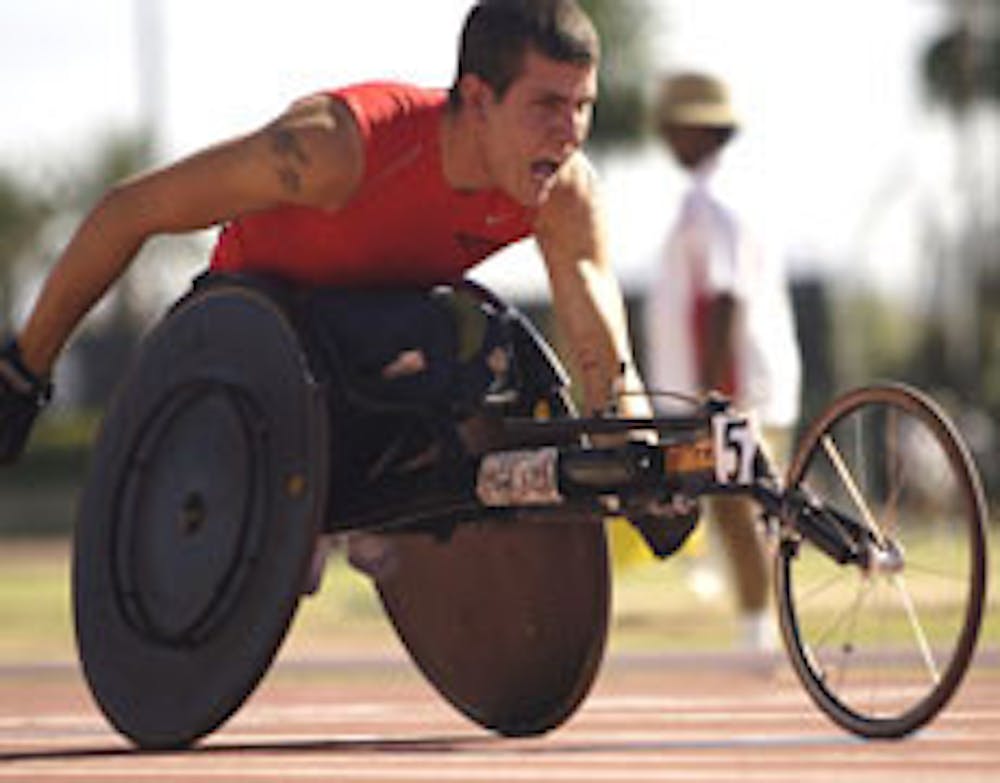When Erik Hightower was 9 years old, his parents had to practically drag him to wheelchair racing practice.
"I absolutely hated it," the 22-year-old part-time West campus student said.
But now, 13 years later, Hightower is still racing, and he's good at it.
He was one of 206 athletes vying for a spot on the U.S. Paralympic team at the national Paralympic track and field trials this weekend at ASU's Sun Angel Stadium.
Beth Bourgeois, communications manager for the U.S. Olympic Committee, said the paralympics is a division of the committee, held alongside the Olympic games since 1960.
There are 19 summer sports and five winter sports in the Paralympic Games, and athletes are grouped by disability — visually impaired athletes, athletes with cerebral palsy, athletes with partial or completely amputated limbs and athletes confined to wheelchairs.
At this weekend's track and field trials, 44 of the 206 athletes — 27 male and 17 female — were chosen to compete in Beijing in September.
"It's the pinnacle of competition for an athlete with a disability," Bourgeois said.
Hightower is confined to his wheelchair because of spina bifida, a condition in which the spinal cord opens during the first few months of pregnancy.
The Glendale resident said he is taking a few classes at ASU before going to the Art Institute of Phoenix to become a veterinary technician.
He races the 100, 200 and 400-meter races and his times were most likely good enough to get him on the U.S team.
"Ever since I started liking track back in the day this has been a goal of mine," he said. "It's amazing — that's been my word of the week."
Hightower's coach, Troy Davis, also competes in the 100, 200 and 400-meter races.
Davis, 33, has been racing for 20 years. He started after hearing about the sport through a P.E. program for disabled children in Mesa.
In 2000, he made it to the Paralympics in Australia, where the U.S. team earned fourth place in the 4x1 relay. Davis earned eighth place in the individual races.
"It was an amazing experience," he said. "The opportunity to compete in those games again is the reason I'm here."
For now, Davis said he is focused on making this year's Paralympics in Beijing and spending the next three months training himself and his four racers.
"And then the goal obviously is to win medals," he said.
Davis trains twice a day five times a week.
"It takes a lot of time and dedication," he said.
Susan Rossi, event director for Arizona Disabled Sports in Mesa, said the non-profit organization has been around for about 12 years, though Mesa has been hosting disabled sports programs for decades.
The year-round program gives about 500 disabled children and adults the chance to meet weekly to participate in sports like track, archery, soccer, kayaking and bowling.
Having a program dedicated to serving people with disabilities is something Mesa prides itself on, Rossi said.
"It's just essential that we offer our services to everyone," she said.
Rossi said the organization is always on the lookout for coaches who specialize in a sport or have disability knowledge — the reasons they recruited Davis to train.
"I think it's really important for these guys to get trained by people in a similar position or with a similar condition," she said.
Reach the reporter at: allison.denny@asu.edu.





